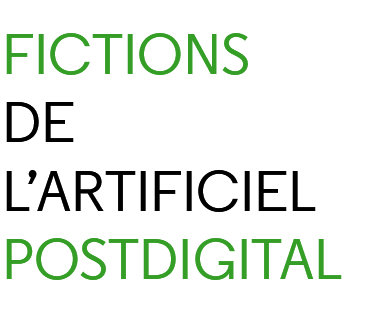Instruments of Creation (Mario Klingeman)
The ability to wield tools is one of the core qualities that define humanity. The evolution of human culture has always run parallel to the evolution of the tools and instruments at our disposal. Machine learning and what is commonly known as artificial intelligence is a very recent instrument that we have created and we are starting to apply it to all possible areas, including the creation of art. As with any instrument it takes time to learn how to use it skillfully or how to play it masterfully. Mario Klingemann has been experimenting with the possibilities to create visual art with artificial neural networks for several years and is beginning to understand the potential and limitations of these instruments. In his talk he will give insights into his process and show some of the latest developments in this fast-moving field.
Mario Klingeman is an artist and a skeptic with a curious mind. His preferred tools are neural networks, code and algorithms. His interests are manifold and in constant evolution, involving artificial intelligence, deep learning, generative and evolutionary art, glitch art, data classification and visualization or robotic installations. If there is one common denominator it’s his desire to understand, question and subvert the inner workings of systems of any kind. He also has a deep interest in human perception and aesthetic theory.
http://quasimondo.com
On the Logical and Political Form of Machine Learning (Matteo Pasquinelli)
Félix Guattari said that machines are « hyperdeveloped and hyperconcentrated forms of certain aspects of human subjectivity ». In which way then does machine learning « concentrate » social features and knowledge? My talk brings back the genealogy of the different techniques of machine learning (what is popularly termed as AI) to the paradigm of computational geometry that is shared by computer science pioneers such as Frank Rosenblatt, Marvin Minsky, John von Neumann and Konrad Zuse. If machine intelligence emerged with neural networks as a sophisticated technique of spatial pattern recognition, today’s computer scientists prefer the more general and abstract notion of input-ouput mapping. In this sense, (artificial) « intelligence » has become recently just the most effective solution to the problem of information compression. The problem of the definition of AI could stop here with this arid quantitative concept of « compression ». What information compression implies, however, is information loss and a new breed of errors, transformation of collective perception, apophenia (seeing things that are not actually there) and asymmetrical accumulation of knowledge yet to be discussed. If machine intelligence is distorted, however, this is not necessarily bad, as human knowledge and art are always a form of distortion, that is a hypothesis about the world.
Matteo Pasquinelli is Professor in Media Philosophy at the University of Arts and Design, Karlsruhe. He recently edited the anthology Alleys of Your Mind: Augmented Intelligence and Its Traumas (Meson Press) among other books. His research focuses the intersection of cognitive sciences, knowledge economy and machine intelligence. For Verso Books he is preparing a monograph provisionally titled The Eye of the Master: Capital as Computation Cognition.
http://kim.hfg-karlsruhe.de









Entrée libre et sans inscription
Intervenants : Mario Klingeman et Matteo Pasquinelli
Date et heure : 28 mai 2018 – 14h-16h
Lieu : École Normale Supérieure – salle Dussane
45, rue d’Ulm, Paris 75005
